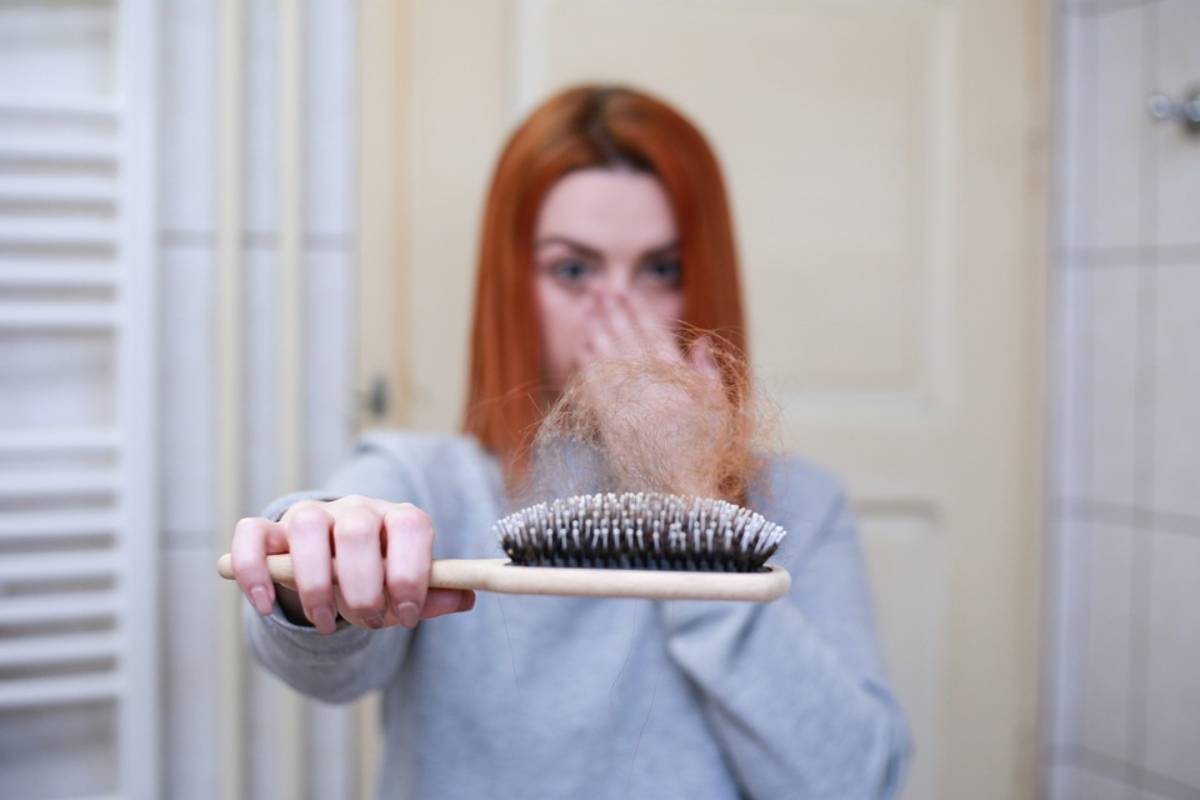Hormonal Hair – If you’ve ever dealt with hair loss then you know how distressing hair loss can be. Trying to understand why hair loss is happening can be daunting because there are many potential causes of hair loss. These causes can vary for men and women.
We hear a lot about male hair loss simply because it’s very prevalent among men. (By the age of 35, around 66% of men will experience hair loss to some degree.) But hair loss happens to women too. For ladies, the prevalence is comparatively lower but it’s still common. 1 in 3 women will notice hair thinning or hair loss by the age of 30.
Women don’t tend to lose hair in the same pattern that men do. Male hair loss normally begins at the front of the hairline and causes a receding hairline — eventually exposing the crown of the head. Women normally experience diffuse hair loss, causing thinning across the entire scalp.
For some, hair loss is only temporary while others deal with progressive and potentially permanent conditions. This is why it’s so important to diagnose and treat hair loss as early as possible. At Strut Health, we diagnose and treat hair loss totally online. Every day we help people find hair loss solutions that work for them.
When it comes to hair loss in women, there are several potential causes. One of the most common culprits behind female hair loss is hormonal imbalance. Unlike genetic hair loss, hormonal hair loss may be reversible with the right treatment.
Table of Contents
Hormones and female hair loss
Hormones are tricky and an imbalance, for any reason, can cause many unwanted symptoms. There are a few common situations where a woman might experience hormonal-related hair loss. Let’s detail a few common scenarios that might cause hormonal-related hair loss in women.
Hair loss after giving birth
Hair loss in new moms is pretty common. However, dermatologists don’t call it ‘hair loss’ perse as it’s only due to excessive shedding of hair and the hair growth will restabilize.
Excessive shedding is caused by a steep decline in the hormones estrogen and progesterone after giving birth. This can push a large chunk of hair follicles into a resting stage, which is soon followed by the shedding stage.
A mom experiencing this type of excessive shedding can lose large amounts of hair a few months postpartum. But her hair growth is likely to return to normal within a year of giving birth.
Hair loss during perimenopause and menopause
Hair loss is also common for those who have entered perimenopause or menopause. This is due to a lack of adequate levels of estrogen and progesterone. These hormones are involved in keeping hair growing, so when levels of estrogen and progesterone dip, so to can hair growth.
In response to this hormone loss, it’s common for androgen levels to rise. Androgens are male sex hormones, that in excess, are linked to hair loss and follicle damage.
Changes in your hair due to menopause may be long-term since the changes in hormones are likely to remain. But, speaking with your doctor at the first sign of thinning may be a good idea to help reduce further hair losses.
Changes in birth control
Hormonal birth control has also been linked to hair loss. Starting a new pill and coming off a Hormonal contraceptive can cause hormonal disruption which may cause hair loss. This again is temporary as hormones will restabilize and the hair growth cycle should too.
However, if you are on birth control as a means of managing other hormonal conditions, it’s possible hair loss might continue.
If you have a history of hair loss or have conditions that could exacerbate hair loss, being on a hormonal contraceptive that has high androgenic activity might cause further issues with hair growth.
Health conditions that cause high levels of androgens
Androgens are often the culprit behind hair loss in both men and women. Having excess androgens can cause hair loss and for women, unwanted hair growth on the face or chest.
A common condition that could cause high androgens levels and hair loss is polycystic ovary syndrome (PCOS). Not only can it affect your hair growth it commonly affects menstruation.
Hair loss caused by androgens is referred to as androgenic alopecia. Over time the excess of androgens can shrink hair follicles and thereby causing permanent hair loss. This is the same type of androgen-driven hair loss men are often affected by.
Twofold solutions for hair loss in women
For women who deal with hair loss because of hormonal changes, here are a few things you can do about it.
Anti-androgen medication
The aforementioned androgens can really wreak havoc on hair follicles so a common treatment is using androgen inhibiting medication. Medications like Spironolactone work by blocking androgenic hormones from binding to androgen receptors, and can be used in women.
Minoxidil
Blocking androgens might not be enough to round out a hair loss treatment. This is why topical medications like minoxidil are commonly recommended. Minoxidil, the active ingredient in Rogaine, is thought to help hair growth by stimulating hair follicles with increased blood supply.
Using both androgen blockers and topical hair growth medications can help those who deal with hormonally driven hair loss
Hormone replacement for menopausal women
For women who are postmenopausal and are dealing with hair thinning, hormonal replacement therapy (HRT) might help. However, HRT is not an appropriate option for everyone, so speak with your doctor about the pros and cons of therapy.
Hormonal hair loss is treatable
If you’re dealing with hormonal hair loss know that this type of hair loss may be reversible if the root cause is treated properly. Without treatment, however, some hormonal hair loss might progress.

